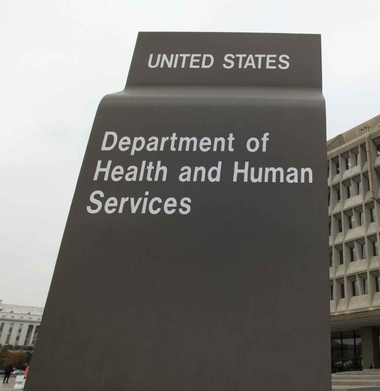South Carolina foster care providers can reject people who don't share their religious beliefs

Federally funded child welfare agencies in South Carolina can refuse to perform services that conflict with their religious beliefs, the US Department of Health and Human Services said Wednesday.
The announcement came in response to Gov. Henry McMaster's request for a waiver for faith-based groups that contract with the state for foster care services, such as child placements and screenings of prospective families.
Citing the Religious Freedom Restoration Act, McMaster requested an exemption from federal regulations enacted by the Obama administration that forbid discrimination based on sexual orientation, gender identity and religion -- among other identities -- in HHS programs and services.
States and grantees must comply with federal regulations to receive HHS funding.
McMaster said the requirements forced faith-based providers to choose between their religious beliefs or a license to contract with the state, potentially forcing agencies to close their doors. McMaster also objected to how the requirements were put in place, saying it conflicted with existing regulations.
Civil rights organizations and child welfare advocacy groups decried the decision, calling it state-sponsored discrimination that would affect non-Christians, the LGBTQ community, or anyone who doesn't meet an agency's "religious litmus test."
Above all, they said the waiver would harm children in foster care.
"Allowing child placing agencies to turn away qualified adoptive and foster parents reduces the number of loving families available to the over 4,000 children in South Carolina's foster care system, and further demonstrates that the Trump administration values a narrow set of religious beliefs over the need to find loving, stable homes for children currently in state care," said Shelbi Day, senior policy counsel with Family Equality Council.
Lynn Johnson, assistant secretary for the Administration for Children and Families within HHS, cited the need for more families in the foster care system as a reason ACF granted the state's request.
"This decision preserves all of the foster care agencies currently available for children in South Carolina by ensuring faith-based organizations can continue to serve this vulnerable population. It protects minors who are in need of as many options as possible for being placed in loving foster families."
Johnson said ACF consulted with department subject-matter experts, including the Office for Civil Rights, the agency that ensures HHS programs and grantees are in compliance with the Religious Freedom Restoration Act.
As a condition of the waiver, Johnson said agencies must refer anyone they turn away to other placement agencies or the state.
"By granting this request to South Carolina, HHS is putting foster care capacity needs ahead of burdensome regulations that are in conflict with the law," Johnson said.
McMaster named one organization in particular in his waiver request. Miracle Hill Ministries, whose services include foster care, said the state Department of Social Services threatened to revoke its license if it continued to only recruit Christian families.
Miracle Hill made headlines in 2018 when it turned away a Jewish woman, who sought to mentor children in foster care, because she did not share the organization's religious beliefs.
"We are deeply gratified by this decision, which allows Miracle Hill Foster Care to keep its license and continue serving nearly 200 foster children and more than 230 foster families," said Reid Lehman, president and CEO of Miracle Hill Ministries.
"It's always been about the license, our right to exist."
The waiver is the first such federal action of its kind, said Leslie Cooper, deputy director of the American Civil Liberties Union's LGBT & HIV Project. She said it sets a troubling precedent, as Texas has made a similar request to HHS.
"Prospective foster and adoptive parents should be judged only on their capacity to provide love and support to a child — not their faith," Cooper said. "Our elected officials need to make clear that the interest of children -- not the religious views of taxpayer-funded agencies -- come first."
By Emanuella Grinberg, CNN. The-CNN-Wire™ & © 2019 Cable News Network, Inc., a Time Warner Company. All rights reserved.
The Gayly – January 24, 2019 @ 7:10 a.m. CST.





